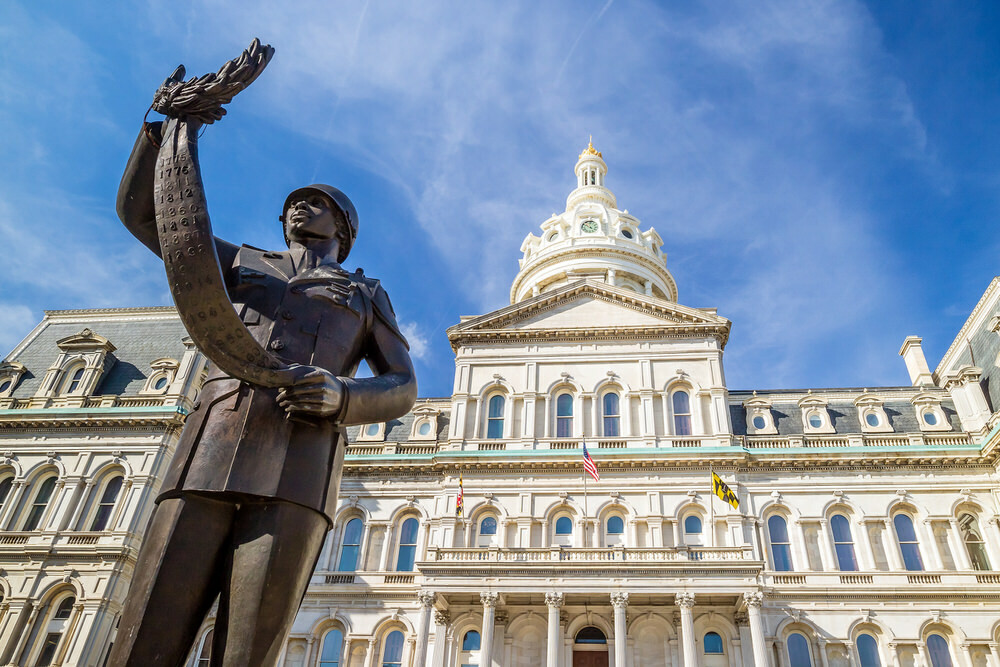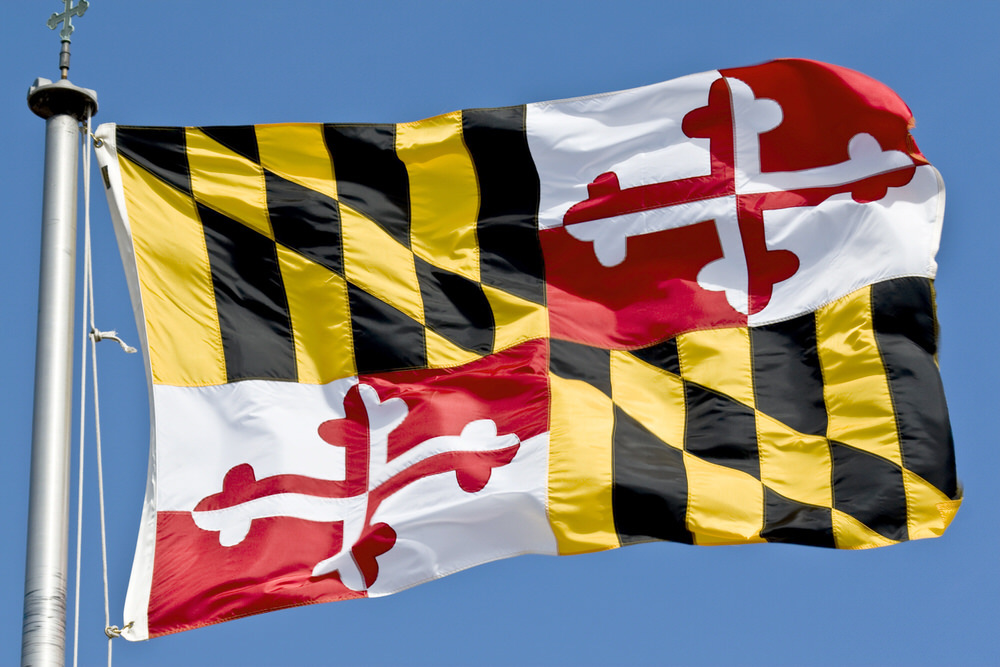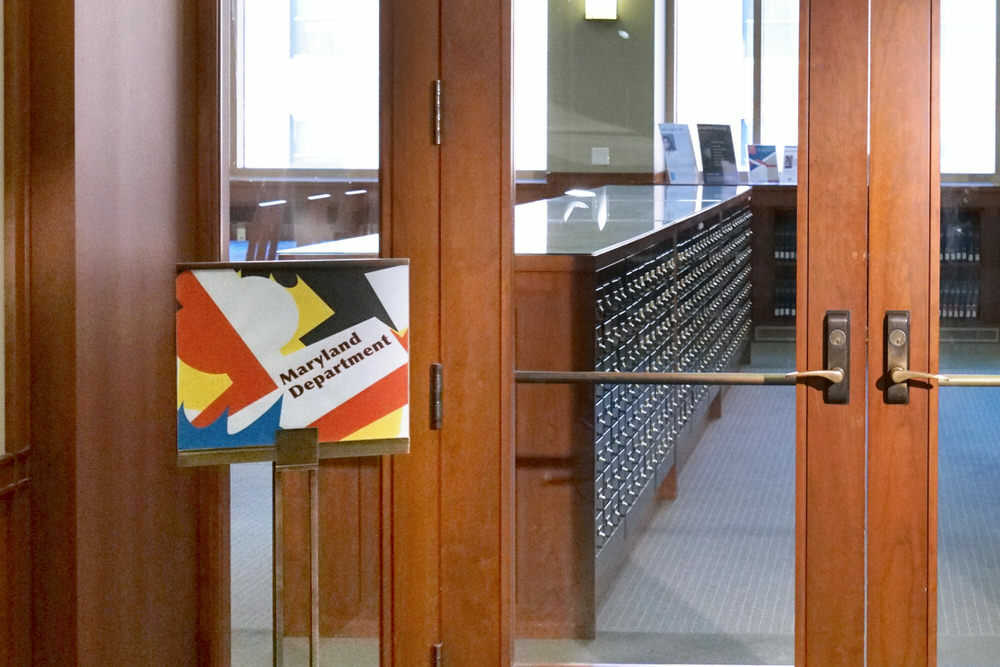Becoming an Informed Voter
Active participation of citizens through voting is essential to representative democracy. This guide will help you understand and become involved in the election process in Maryland.
Voter Registration & Voting
To register to vote, you must:
- be a US Citizen
- be a Maryland resident
- be at least 16 years old at time of registration and 18 years old by the next general election
- not have been found by a court to be incapable of voting by reason of mental disability
- not have been convicted of buying or selling votes
- not have been convicted of a felony for which you are currently serving a court-ordered sentence of imprisonment


The voting systems page provides an overview and instructions for using Maryland's Voting System. For information or for answers to questions about voting in Maryland go to the Maryland State Board of Elections. If you want to register to vote, you can download an online application.
You can use the Maryland State Board of Elections Voter Services page to:
- review your voter registration record
- request a duplicate voter registration card
- find out what voting district you live in
- find out where to vote
- find out your local board of elections
- see the status of your absentee or provisional ballot
- view your sample ballot
Voter Rights
It’s important to learn your rights as a voter, and there are a number of laws and organizations that protect voting rights.
The mission of the Civil Rights Division Voting Section of the U.S. Department of Justice is to enforce "the civil provisions of the federal laws that protect the right to vote, including the Voting Rights Act, the Uniformed and Overseas Citizens Absentee Voting Act, the National Voter Registration Act, the Help America Vote Act and the Civil Rights Acts".
The Help America Vote Act of 2002 was passed to help "establish minimum standards ... for the administration of Federal and State elections…" The Voting Rights Act of 1965 prohibits any state or local government from imposing any qualification or prerequisites to voting that would result in denial or abridgement of the right to vote on account of race or language minority status.
The Fannie Lou Hamer, Rosa Parks, and Coretta Scott King Voting Rights Act Reauthorization and Amendments Act of 2006 amended and extended the special provisions of the Voting Rights Act of 1965 by 25 years. The ACLU Voting Rights Project offers information on a variety of voting rights and related issues.
As of March 10, 2016, ex-felons in Maryland are allowed to vote. According to Senate Bill 340 passed in the Maryland Legislature, once a person has completed serving their court ordered sentence they are once again eligible to vote.
Maryland Government
When voting in local and state elections, it is important to understand the structure and role of local and state governments.
The Maryland Manual Online is the most comprehensive and continuously updated guide to Maryland state and local government.
The Maryland General Assembly will show you everything you need to know about our elected officials, our laws, and the process in which they are made.
Who are Your Elected Officials? is a website designed by the state of Maryland to help you find your current officials and your districts.
Political Parties
Currently there are three political parties recognized by the State of Maryland, according to the Maryland Manual Online.
- Democratic Party (Maryland) (National)
- Republican Party (Maryland) (National)
- Bread and Roses Party (National)
Politics1's Directory of U.S. Political Parties provides an extensive list of political parties throughout the nation.
Candidate Information
Before you vote, you should take some time to educate yourself on the candidate and issues on the ballot.
League of Women Voters of Maryland provides voter registration and education with links to candidates for statewide offices and their positions on issues.
Project Vote Smart features information about current officeholders and candidates for national and state offices. It also has information on campaign finances, issue positions, voting records, and evaluations by special interest groups.
Rock the Vote educates and encourages young people to vote and become involved in the political process.
Common Cause, is a nonpartisan, nonprofit organization and has a website devoted to all aspects of politics, government and elections.
Congress.gov tracks the legislative activities of members of Congress, as well as the activities of state and local officials. You can find the text of current bills before Congress, summaries of bills, their current status, roll call votes and all public laws passed by Congress since 1973. It also provides directories for officials from the president to local government.
Campaign Financing
As you consider the candidates on your ballot, you may be interested in learning more about how their campaigns were financed.
Open Secrets is one of the most comprehensive guides to campaign finances on the Internet. This website has data on the size and sources of campaign contributions, and allows you to search in reverse to find out all of the candidates that one business or individual has been supporting.
The Federal Election Commission is charged with administering and enforcing federal campaign finance laws. You can find finance data for all U.S. House and Senate candidates and contributions to each candidate by political action committees and individual contributors.

Maryland Department
The Maryland Department is a comprehensive collection of materials related to the state of Maryland.

Social Science and History Department
Find materials to help you whether you’re looking for a historic map, investigating true crime, or researching federal law.
If you would like to know more, try our Live Chat with a Librarian service, or contact us.





